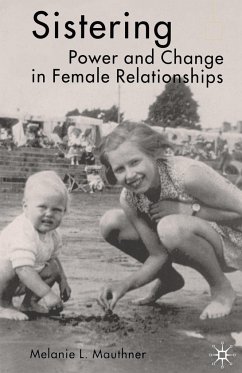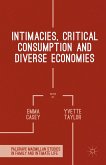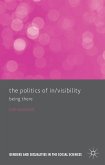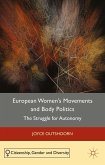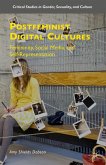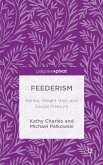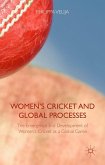Sister stories are rare compared with images of celebrity sisters and 'sisterhood'. Based on 37 interviews, this fascinating book uncovers sisters' complex relationships. Readers will play 'mapping' games to guess where they figure in its patterns. Sisters talk passionately about how their closeness and distance affects the power-balance between them. Making parallels with friendship and caring, it explores formations of gender, identity and intimacy in family life. Sistering was nominated for the British Sociological Association's 2003 Philip Abrams Prize.
'There is not much research on sister relations, in spite of the metaphoric meaning of sisterhood in the feminist movement. Melanie Mauthner's new book Sistering fills this gap excellently. Using biographies of pairs of adult sisters, she analyses various discourses of sistering. She discusses, for example, the changes in sistering as women grow older, and pays attention to the different ways that women actively do sistering rather than passively experience it. I warmly recommend this book for students and researchers in the fields of feminist studies, education, sociology and family research. But it provides a fascinating reading experience for others as well. The narratives of the interviewed pairs of sisters captivate, and they also seduce the reader to personal memories and reflections - to relations with their own sister or, as in my case, to the re-recognition of the sorrow of not having a sister.' - Elina Lahelma, Academy Fellow, University of Helsinki, Finland
'It is not that often that academics uncover a whole new area of research, and more rarely still do they show us it was right under our noses. Melanie Mauthner, whose study of sistering relationships is both scrupulous and passionate, does just that. Sistering balances academic analysis with 'slices of life' from the anonymous interviews. The latter make utterly addictive reading...' - Lalitte Stolper, Lecturer in English and Cultural Theory, Ecole Superior de Beaux Arts du Mans
'Sisteringis a fascinating, intricate and intriguing account of a particular set of female relationships that have rarely been studied and articulated in public...a pot pourri of complex and diverse relationships between sisters, their mothers and partners or lovers - fascinating accounts...' - Miriam E David, Gender and Education
'This book will be of interest to those doing research on family relationships, and on relations of power between women. In addition, Mauthner offers food for thought to those working on feminist theory and who use sisterhood as a political metaphor. The empirical accounts of familial sisters show that we should not overly mythologize this relationship as an entirely positive one; at the same time, women's conscious efforts to work through or accept differences between them may indeed create a relation that is highly supportive. Mauthner's contribution lies in showing how the relations between women are better captured by the notion of 'sistering'- a verb that evokes the on-going effort of creating kinship-rather than taken for granted as a fixed, naturalistic, or essentialistic relation which the noun 'sisterhood' too easily implies.' Muriel Mellow, The Canadian Review of Sociology and Anthropology
'In Sistering, the use of an auto/biographical approach through in-depth interviewing certainly generates rich, fascinating data which enables the complex nature of sistering and the four sistering discourses to emerge... This book is an excellent read, discussing complex ideas, highlighting both the joy and pain involved in sistering, whilst being written in a language which is accessible... It is a book which is very thought provoking and accessible to anyone interested in feminist discussion of female relationships, and also of interest to undergraduates, postgraduates and academics concerned with Sociology and Female Relationships or Women's/Gender Studies.' Jane Elliott, International Journal of Social Research Methodology
'It is not that often that academics uncover a whole new area of research, and more rarely still do they show us it was right under our noses. Melanie Mauthner, whose study of sistering relationships is both scrupulous and passionate, does just that. Sistering balances academic analysis with 'slices of life' from the anonymous interviews. The latter make utterly addictive reading...' - Lalitte Stolper, Lecturer in English and Cultural Theory, Ecole Superior de Beaux Arts du Mans
'Sisteringis a fascinating, intricate and intriguing account of a particular set of female relationships that have rarely been studied and articulated in public...a pot pourri of complex and diverse relationships between sisters, their mothers and partners or lovers - fascinating accounts...' - Miriam E David, Gender and Education
'This book will be of interest to those doing research on family relationships, and on relations of power between women. In addition, Mauthner offers food for thought to those working on feminist theory and who use sisterhood as a political metaphor. The empirical accounts of familial sisters show that we should not overly mythologize this relationship as an entirely positive one; at the same time, women's conscious efforts to work through or accept differences between them may indeed create a relation that is highly supportive. Mauthner's contribution lies in showing how the relations between women are better captured by the notion of 'sistering'- a verb that evokes the on-going effort of creating kinship-rather than taken for granted as a fixed, naturalistic, or essentialistic relation which the noun 'sisterhood' too easily implies.' Muriel Mellow, The Canadian Review of Sociology and Anthropology
'In Sistering, the use of an auto/biographical approach through in-depth interviewing certainly generates rich, fascinating data which enables the complex nature of sistering and the four sistering discourses to emerge... This book is an excellent read, discussing complex ideas, highlighting both the joy and pain involved in sistering, whilst being written in a language which is accessible... It is a book which is very thought provoking and accessible to anyone interested in feminist discussion of female relationships, and also of interest to undergraduates, postgraduates and academics concerned with Sociology and Female Relationships or Women's/Gender Studies.' Jane Elliott, International Journal of Social Research Methodology

